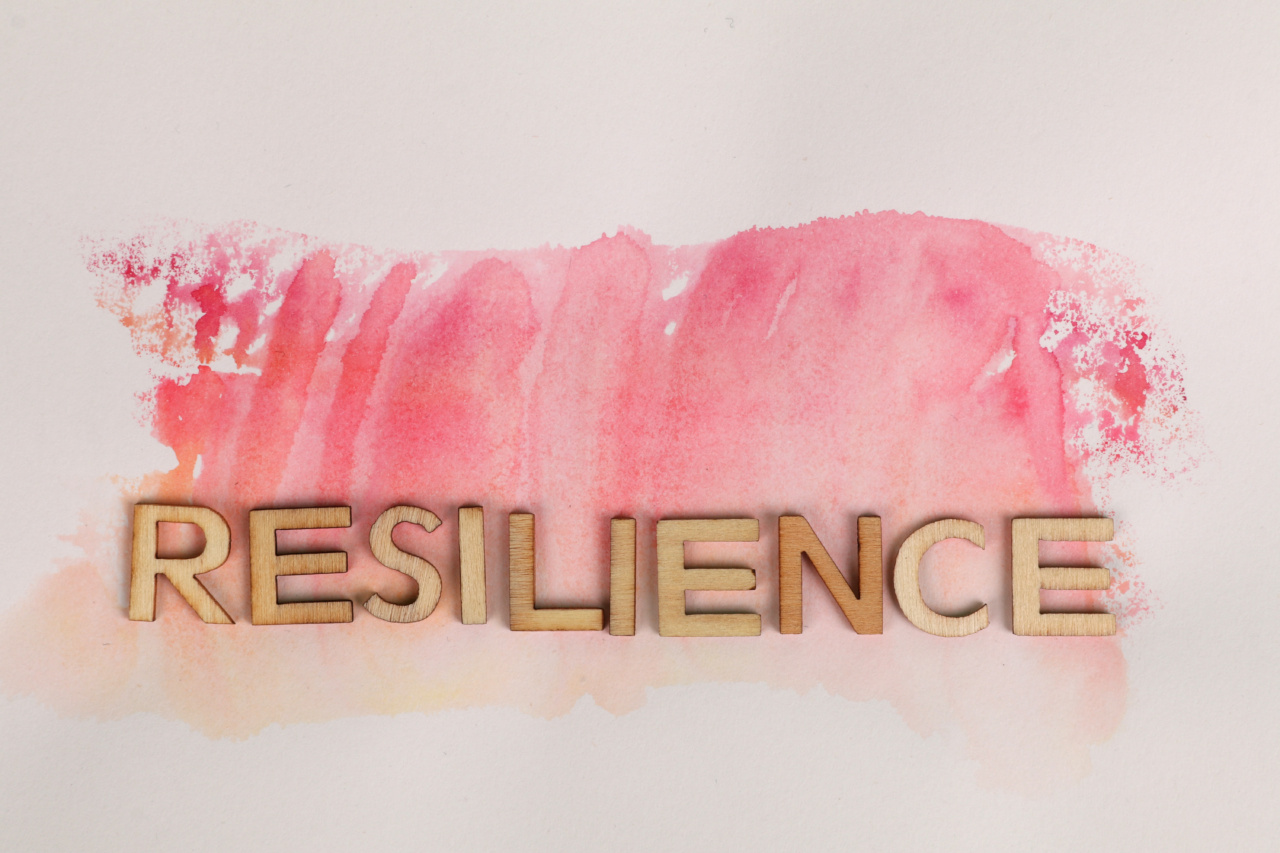Resilience is a trait that allows individuals to bounce back from adversity, challenges, or difficult situations. It is the ability to adapt, recover, and thrive in the face of setbacks.
Just like any art form, resilience requires practice, patience, and a positive mindset. In this article, we will explore the art of resilience and how it can be developed and nurtured.
1. Understanding Resilience
Resilience is more than just mere toughness or endurance. It is the mental and emotional fortitude that enables individuals to navigate through life’s ups and downs.
Resilient people have a strong sense of self-belief, they are optimistic, adaptable, and have a growth mindset. They possess the ability to overcome obstacles, learn from failures, and come out stronger on the other side.
2. Building a Resilient Mindset
Developing a resilient mindset is crucial for cultivating resilience. It starts with recognizing that setbacks and failures are a normal part of life.
Instead of dwelling on the negatives, resilient individuals focus on what they can control and learn from their experiences.
Practicing gratitude and mindfulness are effective ways to shift one’s perspective and foster resilience.
By appreciating the present moment and acknowledging the positives in life, individuals can develop a more positive outlook, even in challenging times.
3. Embracing Change
Resilience involves being open to change and accepting it as a natural part of life. Change can be uncomfortable and unsettling, but resilient individuals understand that it is necessary for personal growth and development.
They approach change with curiosity and a willingness to adapt.
Developing a flexible mindset allows individuals to embrace new challenges and see them as opportunities for growth.
Resilient individuals are not afraid to step out of their comfort zones and try new things, as they understand that failure is not a setback but a stepping stone towards success.
4. Cultivating a Supportive Network
Having a strong support network is essential for building resilience. Surrounding oneself with positive and supportive individuals can provide the necessary encouragement and motivation during difficult times.
Resilient individuals reach out for help and seek guidance from their support network when needed. They understand the importance of leaning on others and are not afraid to ask for assistance.
Building and nurturing these relationships is crucial for fostering resilience.
5. Setting Realistic Goals
Resilient individuals set realistic and achievable goals. They break down larger goals into smaller, manageable steps that can be accomplished. This approach allows them to make progress and celebrate small victories along the way.
By setting realistic goals, resilient individuals avoid becoming overwhelmed or discouraged. They understand that setbacks and obstacles are part of the journey and use them as opportunities to learn and grow.
6. Self-Care and Well-being
Resilience relies on self-care and prioritizing one’s well-being. Taking care of oneself physically, emotionally, and mentally is vital for maintaining resilience.
This includes getting enough sleep, eating well, and engaging in activities that bring joy and fulfillment.
Resilient individuals practice self-compassion and forgive themselves for mistakes or failures. They understand their limitations and know when to take a break or seek professional help if needed.
Prioritizing self-care allows individuals to recharge and maintain their resilience in the face of adversity.
7. Learning from Failure
Failure is a natural part of life, and resilient individuals understand that it is not fatal but a valuable learning opportunity. They reflect on their failures and mistakes, extracting lessons and insights that can be applied to future endeavors.
Resilient individuals view failure as a stepping stone towards success rather than a reason to give up. They understand that setbacks and challenges provide valuable feedback and can help them refine their strategies and approaches.
8. Embracing Emotional Intelligence
Emotional intelligence plays a significant role in resilience. Being aware of one’s emotions and effectively managing them is crucial for maintaining resilience in difficult situations.
Resilient individuals can recognize and regulate their emotions, which allows them to make rational and well-thought-out decisions.
Moreover, they are empathetic towards others’ emotions and can navigate interpersonal relationships effectively. By understanding and managing emotions, resilient individuals can stay focused, motivated, and resilient when faced with adversity.
9. Maintaining a Positive Outlook
Resilient individuals have a positive outlook on life. They believe in their abilities and maintain confidence even when faced with challenges.
A positive mindset allows them to reframe setbacks as opportunities for growth and stay motivated during difficult times.
Practicing positive affirmations and surrounding themselves with positivity helps resilient individuals maintain their optimism. They choose to focus on solutions rather than problems and find the silver lining in every situation.
10. Celebrating Resilience
Lastly, celebrating resilience itself is essential. Recognizing one’s ability to bounce back from adversity and acknowledging personal growth and achievements fosters resilience.
Resilient individuals take the time to reflect on their journeys and celebrate their progress. By doing so, they reinforce their ability to overcome challenges and continue developing their resilience.































